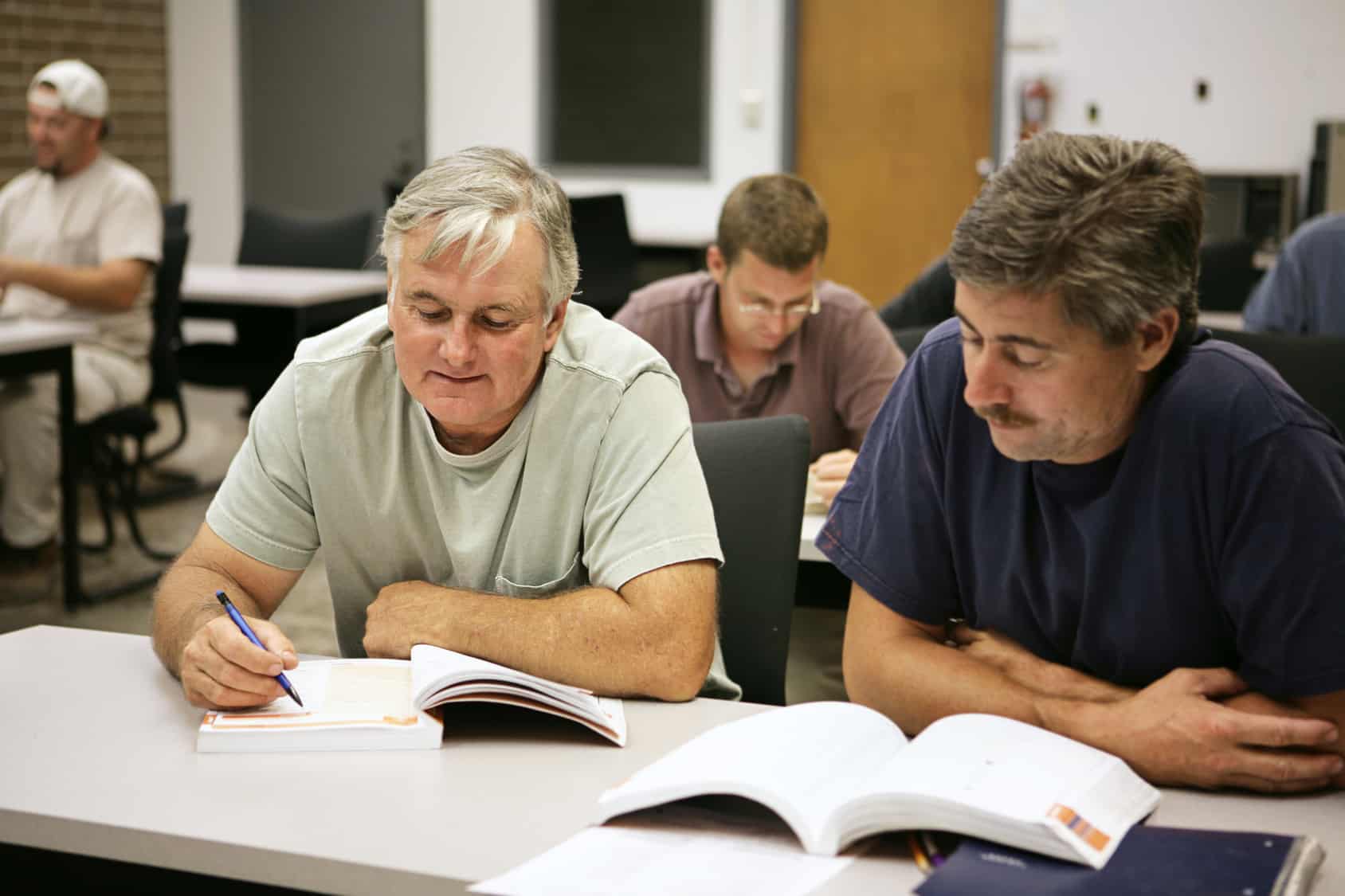Common TEFL Myths Busted!
Join a global community of over 200,000 TEFL teachers working throughout the world! Enrol me!
Did you hear the one about the TEFL teacher who couldn’t get a job because they couldn’t speak Spanish? Or the one about the guy who completed a 120-hour TEFL course in a day? Yip, there are plenty of TEFL myths out there – and we’re here to bust them!
TEFL myth 1: If you can speak English you can teach English
Untrue! Speaking a language is very different to being able to teach a language.
Think about driving a car. Just because you can drive a car doesn’t necessarily mean you know exactly how an engine works, or can explain why we need to use different gears at different times. And you might not know how to fix a car when it has broken down. But you can drive!
Speaking a language doesn’t mean you understand grammar and the rules of the language, or can explain why we say strong coffee but not powerful coffee. This is why we have TEFL courses – to teach you everything you need to know to be able to teach English as a foreign language.

TEFL myth 2: All TEFL courses are the same
Definitely not! TEFL courses vary in content, length, accreditation, and cost.
There are no regulations when it comes to TEFL courses. One TEFL course can be completely different to another one. This is why it’s so important that you trust your TEFL course provider, so you know that you are getting value for money.
At a bare minimum, a TEFL course teaches you the basics of teaching English as a foreign language. It gives you an overview of English grammar and the skills involved in speaking the language. It shows you how to lesson plan, collate resources, develop materials, manage a classroom and assess students, among other things.
Read more: What Do You Learn On A TEFL Course?
The quality of the content of the course is essential to your success as a TEFL teacher. There is no way a $20 TEFL course can give you the knowledge and skills you need to be an effective teacher. And without a quality TEFL certification, there is little chance of you finding a job – so what’s the point?
FYI: The TEFL Academy offers TEFL courses which are accredited, reputable and internationally recognised. A TEFL course from The TEFL Academy is everything you need to get a job teaching English.
TEFL myth 3: You must be a native speaker to teach English
Nope! Your first language has no bearing on your ability as a TEFL teacher. What matters is your proficiency in English.
It’s true that native English speakers have a natural feel for the language. But that doesn’t mean they understand the underlying reasons the language is the way it is, or that they can explain it. Non-native speakers, on the other hand, have taken the same journey as their students, so they understand them better. Plus they are often able to explain the rules of the language better, because they have learnt them themselves.

TEFL myth 4: Teaching English is the same as teaching other subjects
Not true! Teaching English as a foreign language is teaching, but it’s very different to teaching in the popular context.
Teaching methods and styles are very different in a TEFL classroom than in a mainstream classroom. TEFL classrooms are practical spaces. There is lots of communication and collaboration. Learning a language is a team effort in a classroom. A TEFL teacher acts as a guide more than a teacher. Lessons are more student-centred than in traditional classrooms.
You don’t need to study teaching in order to be a TEFL teacher. A TEFL course will teach you everything you need to know to be able to teach English as a foreign language.
TEFL myth 5: You need to speak the local language
Definitely not! It’s common sense to think that you need to speak Spanish to be able to teach a Spanish-speaker English. But it’s totally not true.
Many studies have found that immersion is the best manner of learning a language. If you cannot speak Spanish, your learner is forced to be immersed in English in the classroom. They have no choice but to learn English in order to survive the lessons. While speaking the language can have some benefits – being able to use translation, for example – it’s actually not widely recommended. In fact, many schools will ask you to pretend you cannot speak the language even if you do, just so the students won’t learn to rely on your translation.
TEFL myth 6: You can only teach in a foreign country
Wait, what?! Of course being in a foreign country often means that there are numerous opportunities for English teachers, but doing TEFL in an English-speaking country is an equally possible scenario.
Think about it. Tommy is 12 and he lives in Thailand. He takes English lessons at his school with a TEFL teacher. But Sara is 24. She is Brazilian but has finished school. Her English is still not very good and she would like to study in the UK. So Sara decides to go the UK and take English lessons at a language school for a year before she applies to study at an English-medium university. Jo is a Japanese businessman. His company sends him to South Africa once a year for a month to brush up on his English for his work.
There are a range of different scenarios for TEFL teaching. Being a TEFL teacher doesn’t actually have to mean that you travel to a faraway land; you can do it in your own country.

TEFL myth 7: TEFL teachers only teach children
Incorrect! TEFL teachers teach all ages of students.
Here are just a few TEFL situations:
- teaching English in a kindergarten in China
- teaching teens in a school in Italy
- teaching businessmen and -women in-house in Germany
- teaching Academic English to university students in England
- teaching English for Aviation to pilots in France
- teaching English to backpackers in a language school in the US
So you see, it’s not only Young Learners who need to learn English.
TEFL myth 8: I’m too old to be a TEFL teacher
Simply not true. While many of the younger generation do opt to teach English after graduation, they are by no means the only people who choose to do so.
You’ll meet a variety of individuals from diverse and eclectic backgrounds, some who are straight of university, and others who have had professional jobs before embarking upon a career change. Age, and experience in other industries, is no barrier as a TEFL teacher. In fact, many schools value the knowledge and life experience of older teachers.
TEFL myth 9: Being an English teacher is a walk in the park
Think again! Being an English teacher abroad is endless fun, full of adventure, but also hard work.
There are many who think that you can waltz into school with no lesson plan, fudge your way through a class and consistently get away with it. Teachers often have to go through probation and pass an observation, and it will show if you haven’t done your preparation. If you try and bluff your way through your lessons, you’ll also limit the possibilities for your own development. Take it seriously, you’ll have much more fun and get the most out off this incredible opportunity.

TEFL myth 10: TEFL isn’t a career
Oh yes it is! The beauty of TEFL is its flexibility.
You can teach English abroad for a few weeks on a summer camp, a year at a school, or a decade! What’s more, while there’s no reason you can’t teach for the rest of your working life, a TEFL qualification opens doors to a range of other possibilities as well. A TEFL teacher can teach, but can also develop materials, blog, write articles, become a Director of Studies, assess learners for exams – there are endless opportunities for TEFL teachers. You never know where TEFL is going to take you.
The bottom line? Don’t believe everything you read! Talk to experienced professionals (like us!) who can make sure you get to the truth of the matter!
Accreditation & Quality Assurance
The TEFL Academy was the world’s first TEFL course provider to receive official recognition from government regulated awarding bodies in both the USA and UK. This means when you graduate you’ll hold a globally recognised Level 3 (120hr) Certificate or Level 5 (168hr) Diploma, meaning you can find work anywhere and apply for jobs immediately.
 United Kingdom
UK
United Kingdom
UK












